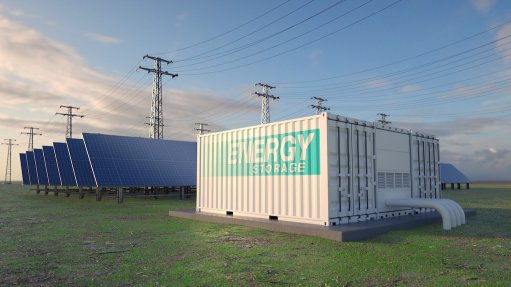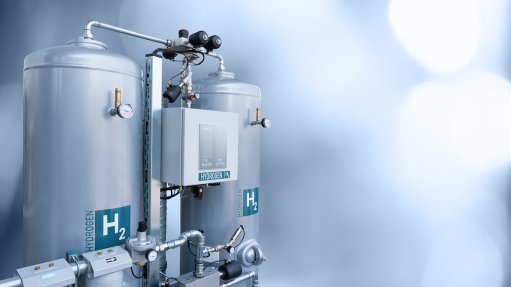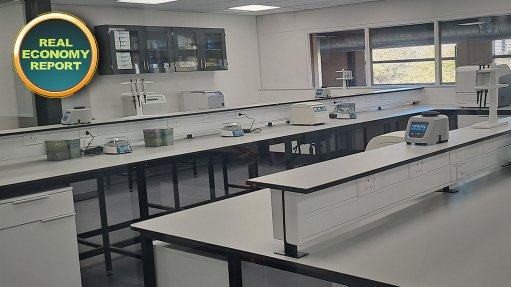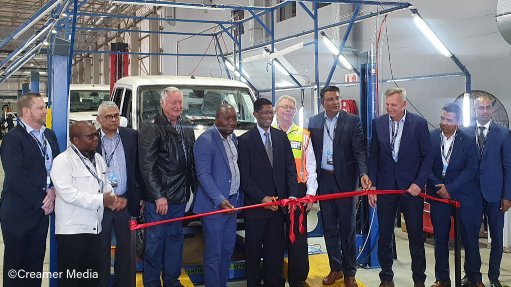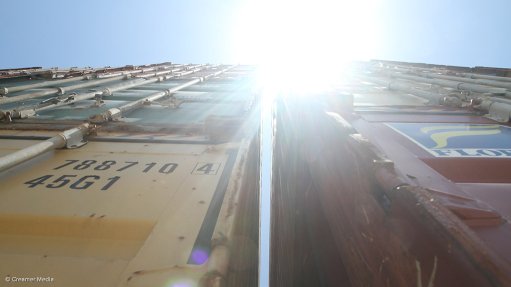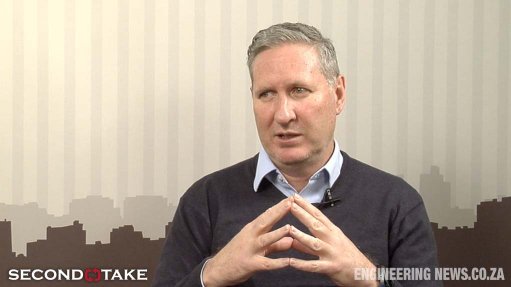Qualified plumbers help property owners realise full benefit of heat pumps

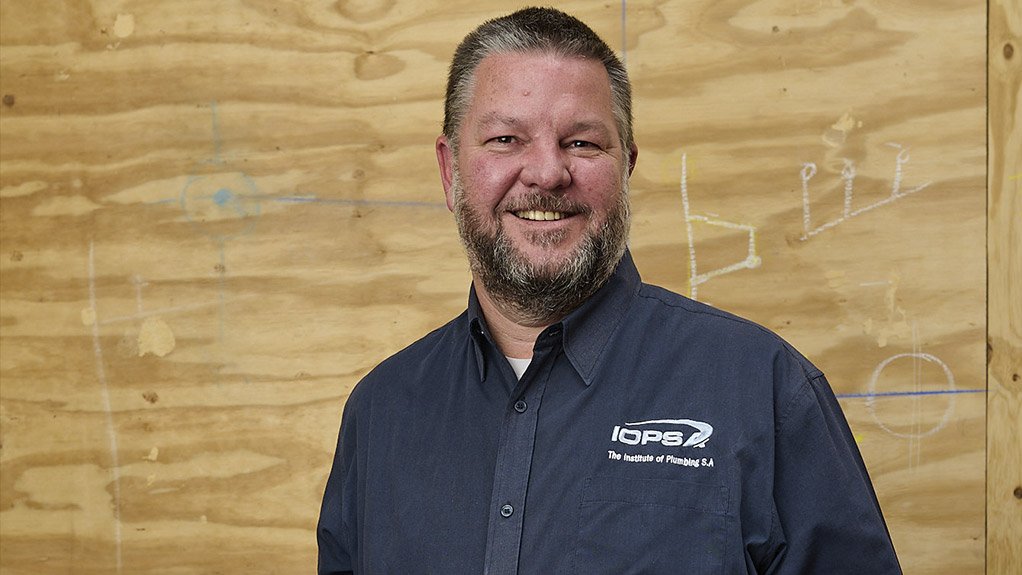
Brendan Reynolds, Executive Director of the Institute of Plumbing South Africa (IOPSA)
This article has been supplied.
Heat pumps have become extremely popular considering the significant savings in electricity that they provide property owners – whether for industrial, commercial or residential applications. However, there are many important factors that need to be considered when installing and maintaining this equipment to ensure that it continues to provide maximum benefit over its between 15- and 20-year life span. High quality heat pumps that have been correctly installed and maintained have even significantly exceeded their design life, with property owners usually seeing a return on their investment within three to 10 years. This pay-back period is becoming shorter when considering the rising cost of electricity.
“This technology can heat the same amount of water as a conventional electric water-heating system using just a third or a quarter of the electricity required by the latter, saving property owners between 30% and 70% on their monthly utility bill. The technology is also 50% more cost-effective than gas and oil boilers to operate. Unlike solar water heaters, they also operate efficiently at any time of day as they are only slightly affected by variations in temperature. Moreover, heat pumps can be easier to install and because they only require minor servicing, they are very cost-effective to own. However, when they have not been installed and maintained correctly, they can actually cost the property owner a lot of money, undoing their intended benefits, which is to reduce electricity bills and the carbon footprint of a premises. It is, therefore, imperative to always use a professional plumber to install and service this equipment,” Brendan Reynolds, Executive Director of the Institute of Plumbing South Africa (IOPSA), says. IOPSA is the official voice of the local professional plumbing industry and comprises a strong membership of plumbers who are committed to quality workmanship. Many of these members also specialise in the installation of heat pumps for a variety of applications. They have installed and are maintaining heat pumps for hotels, hostels, hospitals, schools, office blocks and universities, as well as for a host of industrial applications, including change houses and laundromats. This is in addition to the many systems that have been installed and are being serviced for homeowners. Bear in mind that it is a legal requirement for a Certificate of Compliance to be issued by a Licensed plumber for any heat pump installed.
The majority of heat pumps work on the same principle as a domestic refrigerator. They use a vapour compression cycle that transfers heat from a low temperature to a high temperature body. Refrigerant is used as a transfer medium. Heat is moved from the outside air to the refrigerant in the evaporator at a low temperature and pressure. A compressor compresses the fluid and heat is transferred from the refrigerant at a high temperature and pressure to the water in the condenser. The fluid then flows through the
expansion valve where the temperature and pressure drop before it enters the evaporator again and, in doing so, repeating the cycle.
Well-maintained heat pumps consume between 10% and 20% less energy than those units that have not been correctly maintained. In fact, an important sign that a heat pump is faulty can be a sudden rise in electricity costs. This may be because the heat pump is overworking and, therefore, drawing more energy as important components and parts have worn out.
Poor maintenance can even lead to major repairs having to be undertaken to the heat pump. Compressors, reversing valves and coils, for example, can become damaged, and their replacement an expensive and an extensive process. In severe circumstances, worn out components can also cause the heat pump to break prematurely resulting in major unwanted repair and even replacement costs. Many heat pump manufacturers recommend that their products be maintained at least once a year by the owner to validate their warranties. Bear in mind that this equipment works round the clock and is, therefore, subject to wear and tear.
When servicing a heat pump, professional plumbers will verify the correct thermostat communication, as well as controls and safety switches; inspect belts; and lubricate motors. Among others, they will also check refrigerant levels, as well as the electrical terminals, in addition to cleaning and tightening them if necessary.
Meanwhile, there are many problems that can occur with heat pumps if they have been installed incorrectly.
A common mistake made during the installation of heat pumps is insufficient refrigerant use. If refrigerant levels are too low, performance issues may arise, and the heat pump may become damaged.
Leaking ductwork is also another outcome of poor workmanship. Experts usually seal or rebuild the ductwork system to ensure an airtight fit.
Incorrectly sized heat pumps can also eventually cause problems for owners. Heat pumps that are too large for an application will short cycle and, if too small, they will work overtime to reach the desired temperature. In both instances, more energy will be required to operate the heat pump, and this will reflect on owners’ monthly energy bills.
“Savings on utility bills aside, heat pumps help reduce our carbon footprint. This technology, therefore, has a critical role to play in helping South Africa to achieve its carbon emission reduction targets. The fact that there continues to be a marked uptake of this technology in
the country means that South Africans are opting for ‘greener” living. However, it is important that they deal with specialists who are trained in the correct installation and maintenance of heat pumps to avoid buyers’ remorse,” Reynolds concludes.
Comments
Press Office
Announcements
What's On
Subscribe to improve your user experience...
Option 1 (equivalent of R125 a month):
Receive a weekly copy of Creamer Media's Engineering News & Mining Weekly magazine
(print copy for those in South Africa and e-magazine for those outside of South Africa)
Receive daily email newsletters
Access to full search results
Access archive of magazine back copies
Access to Projects in Progress
Access to ONE Research Report of your choice in PDF format
Option 2 (equivalent of R375 a month):
All benefits from Option 1
PLUS
Access to Creamer Media's Research Channel Africa for ALL Research Reports, in PDF format, on various industrial and mining sectors
including Electricity; Water; Energy Transition; Hydrogen; Roads, Rail and Ports; Coal; Gold; Platinum; Battery Metals; etc.
Already a subscriber?
Forgotten your password?
Receive weekly copy of Creamer Media's Engineering News & Mining Weekly magazine (print copy for those in South Africa and e-magazine for those outside of South Africa)
➕
Recieve daily email newsletters
➕
Access to full search results
➕
Access archive of magazine back copies
➕
Access to Projects in Progress
➕
Access to ONE Research Report of your choice in PDF format
RESEARCH CHANNEL AFRICA
R4500 (equivalent of R375 a month)
SUBSCRIBEAll benefits from Option 1
➕
Access to Creamer Media's Research Channel Africa for ALL Research Reports on various industrial and mining sectors, in PDF format, including on:
Electricity
➕
Water
➕
Energy Transition
➕
Hydrogen
➕
Roads, Rail and Ports
➕
Coal
➕
Gold
➕
Platinum
➕
Battery Metals
➕
etc.
Receive all benefits from Option 1 or Option 2 delivered to numerous people at your company
➕
Multiple User names and Passwords for simultaneous log-ins
➕
Intranet integration access to all in your organisation







